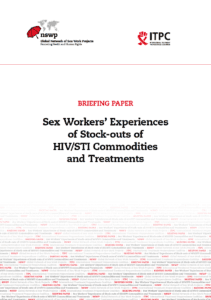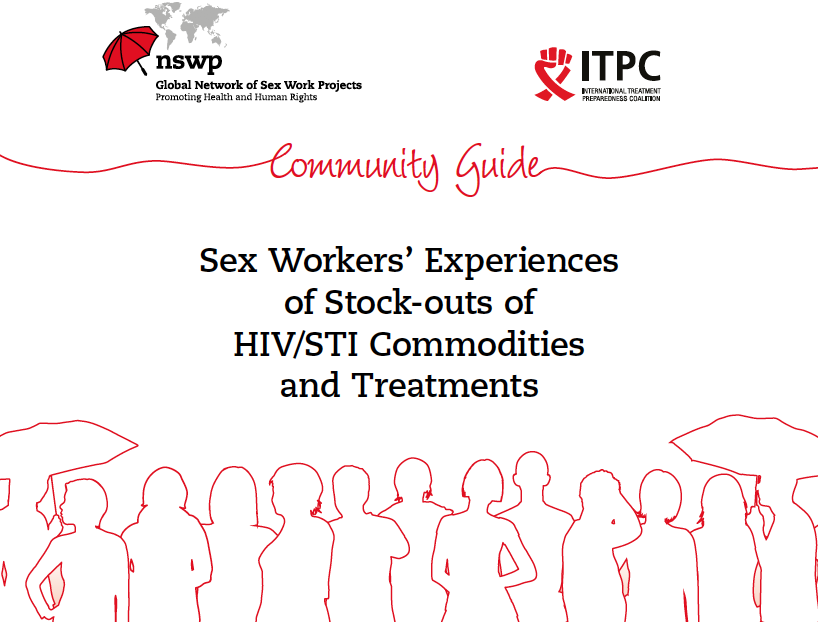 Today, 6 December 2018, the Global Network of Sex Work Projects (NSWP) and the International Treatment Preparedness Coalition (ITPC) release the results of a collaborative research project highlighting the impact of stock-outs of commodities and treatments important to sex workers worldwide.
Today, 6 December 2018, the Global Network of Sex Work Projects (NSWP) and the International Treatment Preparedness Coalition (ITPC) release the results of a collaborative research project highlighting the impact of stock-outs of commodities and treatments important to sex workers worldwide.
The publication – titled Sex Workers’ Experiences of Stock-outs of HIV/STI Commodities and Treatments – summarizes the key findings from this in-depth research.
Download Sex Workers’ Experiences of Stock-outs of HIV/STI Commodities and Treatments here.
Sex workers are disproportionately affected by HIV – with HIV prevalence among female, male, and transgender sex workers estimated to be 14, 18, and 34 times higher than HIV prevalence of the general population. As such, access to commodities for HIV prevention, detection and treatment are critical to the health and well-being of sex workers around the world.
Yet, sex workers frequently and systemically experience stock-outs of the commodities and treatments they want and need for their health and well-being. This results in forced treatment interruptions, involuntary regimen changes, and other factors (i.e. extensive travel and additional cost) that directly impact and jeopardise sex workers’ health and safety.
The research was conducted using standardized questionnaire through a global e-consultation with NSWP member organizations; and in focus groups discussions and interviews in 10 countries: Bangladesh, Cameroon, Côte d’Ivoire, El Salvador, Ghana, Indonesia, Jamaica, Kyrgyzstan, Malawi, and Nicaragua.
The publication outlines:
- Causes of stock-outs
- Stock-out reporting mechanisms
- Types of commodities and treatment stock-outs
- Recommendations for national governments, donor organizations, policy-makers and programmers, based on the evidence presented
